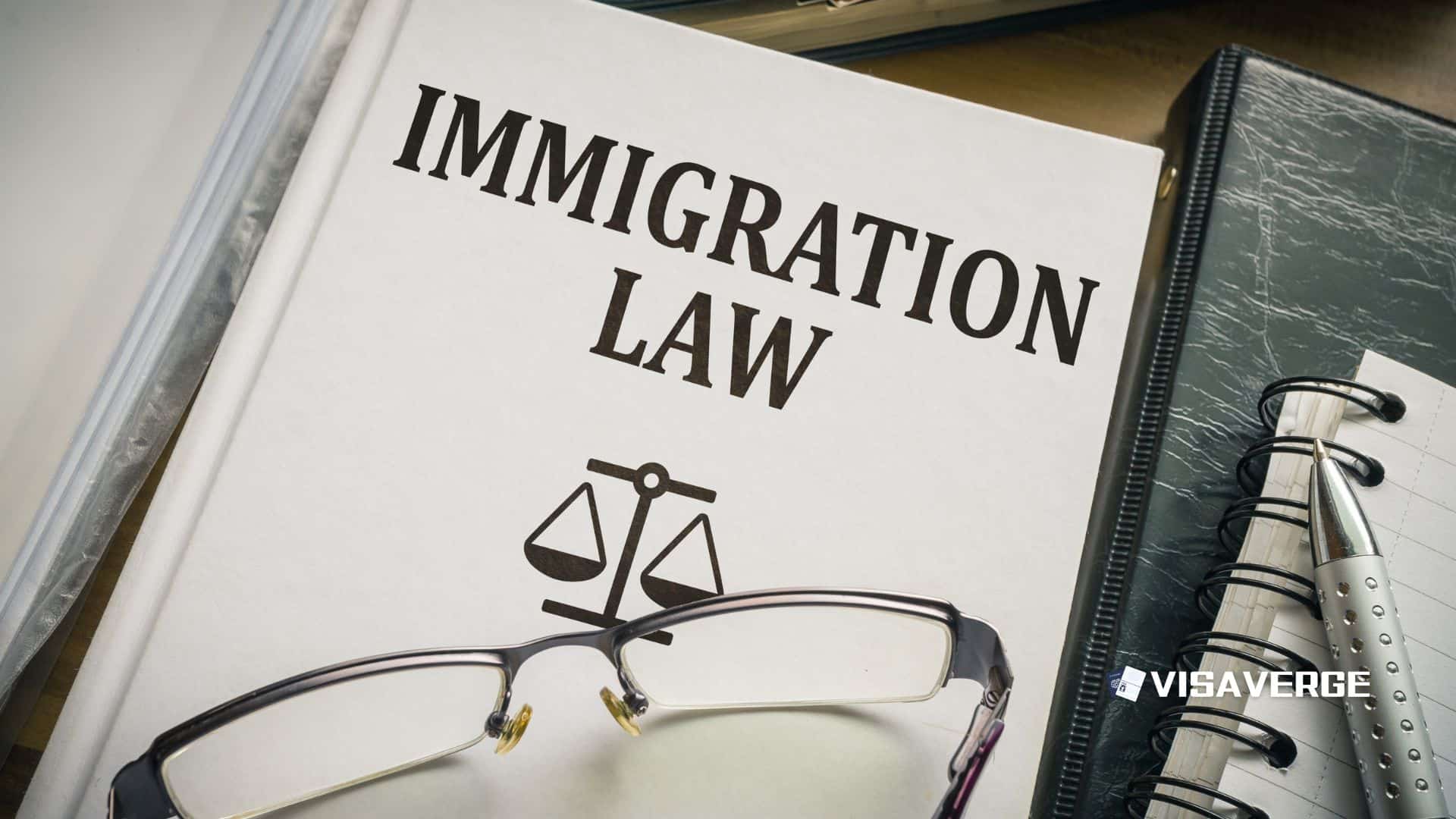Key Takeaways
• Italy plans a 2025 referendum to reduce citizenship residency from 10 to 5 years for non-EU residents.
• New 2025 law restricts citizenship by descent to two generations, with retroactive effects for some applicants.
• Citizenship by marriage now requires spouses to live in Italy and pass a B1 Italian language exam.
Italy’s citizenship laws are going through some of the biggest changes in decades. These changes could affect millions of people, especially non-EU residents and those with Italian roots living abroad. Two major developments are happening at the same time: a national referendum that could make it easier for non-EU residents to become citizens, and a new law that makes it harder for people born outside Italy to claim citizenship through their family. Both of these changes have sparked debate and raised important questions for anyone interested in Italian citizenship.
Let’s break down what’s happening, who is affected, and what these changes could mean for people hoping to become citizens of Italy.

What Is Italian Citizenship and Why Does It Matter?
Citizenship is the legal status that gives a person rights and responsibilities in a country. In Italy 🇮🇹, being a citizen means you can:
– Live and work in Italy without restrictions
– Vote in national and local elections
– Access public healthcare and education
– Travel freely within the European Union
For many, Italian citizenship is not just about paperwork. It’s about belonging, having a say in the country’s future, and being able to build a stable life. It also opens doors for families, students, and workers who want to stay in Italy 🇮🇹 long-term.
The Referendum: Making Citizenship Easier for Non-EU Residents
What Is the Referendum About?
A referendum is a public vote on a specific issue. In this case, Italy 🇮🇹 is planning a referendum to decide whether to make it easier for non-EU residents to become citizens. The main change would be to reduce the number of years someone must live in Italy 🇮🇹 before they can apply for citizenship.
Current Rule: Non-EU citizens must live legally in Italy 🇮🇹 for ten years before they can apply for citizenship.
Proposed Change: The referendum would cut this requirement to five years.
This would bring Italy 🇮🇹 in line with other European countries like Spain, Portugal, Sweden, Ireland, the Netherlands, and the United Kingdom, where the residency requirement is already five years or less.
Who Would Be Affected?
About 2.5 million non-EU residents living in Italy 🇮🇹 could benefit from this change. Many of these people have lived, worked, and paid taxes in Italy 🇮🇹 for years but have not been able to become citizens because of the long waiting period.
How Did the Referendum Come About?
The campaign for the referendum collected over 500,000 signatures in just 19 days, far more than needed. The Constitutional Court approved the referendum, and it is expected to take place between April and June 2025.
What Happens Next?
For the referendum to pass:
– At least 50% plus one of eligible voters must participate
– A majority of those votes must support the change
If successful, the new rule could take effect soon after the vote.
How Does Italy Compare to Other Countries?
Italy 🇮🇹 currently has one of the strictest rules in Europe for non-EU residents:
– Italy 🇮🇹: 10 years
– Spain and Portugal: 5 years
– France: 2-5 years (depending on your situation)
– Sweden, Ireland, Netherlands, UK: 5 years
If the referendum passes, Italy 🇮🇹 would join these countries in making citizenship more accessible for long-term residents.
Why Is This Change Important?
Supporters say that making citizenship easier:
– Helps immigrants feel more included and involved in society
– Encourages people to invest in their communities
– Helps Italy 🇮🇹 deal with an aging population and a shrinking workforce
Opponents, mostly from right-wing parties, worry that it could lead to too many people becoming citizens too quickly or that the system could be abused.
New Law: Stricter Rules for Citizenship by Descent
While the referendum could make it easier for some to become citizens, a new law is making it harder for others—especially those trying to claim Italian citizenship through their family roots.
What Is Citizenship by Descent?
Citizenship by descent (also called jure sanguinis) means you can become an Italian citizen if you have Italian ancestors, even if you were born outside Italy 🇮🇹. Many people in countries like the United States 🇺🇸, Argentina, and Brazil have used this rule to claim Italian citizenship.
What Has Changed?
A new law, Decree-Law 36/2025, was introduced on March 28, 2025, and approved by Parliament on May 20, 2025. It brings several important changes:
1. Retroactive Negative Presumption
If you were born abroad and have another citizenship, you are now considered never to have acquired Italian citizenship—even if you were born before March 28, 2025—unless you meet certain exceptions.
2. Application Deadlines
If you submitted your citizenship application to an Italian consulate or local office (comune) by March 27, 2025 (11:59 PM Rome time), your case will be handled under the old rules.
3. Appointment Provisions
If you had an appointment and submitted your documents on the date given to you by March 27, 2025, your application will also be processed under the old rules.
4. Judicial Applications
If you filed a court case about your citizenship by March 27, 2025, your case is protected under the old law.
5. Two-Generation Limit
The new law limits citizenship by descent to two generations. This means if your Italian ancestor is more than two generations back (for example, your great-grandparent), you may no longer qualify.
When Does the New Law Take Effect?
The law came into force on March 29, 2025. The President’s signature is expected soon, after which the rules will be fully in effect.
Why Was This Change Made?
The government says the new rules are meant to:
– Prevent people with little connection to Italy 🇮🇹 from claiming citizenship
– Make the system more manageable for Italian authorities
However, critics argue that it unfairly blocks people with real family ties to Italy 🇮🇹 from becoming citizens.
Changes to Citizenship by Marriage
The 2025 reforms also changed the rules for people who want to become Italian citizens through marriage.
What’s New?
Before: Foreign spouses of Italian citizens could apply for citizenship, even if they lived outside Italy 🇮🇹.
Now: Only spouses who live in Italy 🇮🇹 can apply for citizenship through marriage.
What Are the Requirements?
- Residency: You must live legally in Italy 🇮🇹
- Waiting Period:
- 2 years of legal residency while married
- Reduced to 1 year if you have children (biological or adopted)
- Language: You must pass a certified B1-level Italian language exam (unless you have proven learning difficulties, which may allow for an exemption based on a recent court ruling)
This means that foreign spouses living abroad are no longer eligible to apply for Italian citizenship through marriage.
Who Benefits and Who Faces Challenges?
Who Stands to Gain?
- Non-EU residents in Italy 🇮🇹: If the referendum passes, they could become citizens after five years instead of ten.
- Italy 🇮🇹 as a country: Easier citizenship could help with labor shortages and an aging population.
Who Faces New Barriers?
- People with Italian roots abroad: The new law makes it much harder for people born outside Italy 🇮🇹 to claim citizenship through their family, especially if their Italian ancestor is more than two generations back.
- Foreign spouses living outside Italy 🇮🇹: They can no longer apply for citizenship through marriage.
Real-World Examples
Example 1:
Maria, a non-EU citizen, has lived in Italy 🇮🇹 for six years, working and paying taxes. Under the current law, she would have to wait four more years before she could apply for citizenship. If the referendum passes, she could apply right away.
Example 2:
Lucas, born in Brazil, has an Italian great-grandparent. Under the old rules, he could apply for citizenship by descent. Under the new law, because his Italian ancestor is more than two generations back, he is no longer eligible.
Example 3:
Anna, a Canadian citizen, is married to an Italian and lives in Canada 🇨🇦. She wanted to apply for Italian citizenship through marriage. Under the new law, she cannot apply unless she moves to Italy 🇮🇹 and lives there for at least two years.
What Are the Broader Implications?
Economic and Social Integration
Supporters of the referendum say that giving citizenship earlier will help immigrants feel more at home, get involved in their communities, and contribute more to the economy.
Demographic Challenges
Italy 🇮🇹 has one of the oldest populations in Europe. Making it easier for long-term residents to become citizens could help fill jobs and keep the economy strong.
Political Debate
The changes have sparked strong opinions. Some see them as necessary to modernize Italy’s citizenship laws and help the country adapt to new realities. Others worry about losing control over who becomes a citizen.
What Happens Next?
Constitutional Court Review
Italy’s Constitutional Court will review parts of the new citizenship by descent law on June 24, 2025. This could lead to further changes, especially if the court finds parts of the law unfair or unconstitutional.
Legal Challenges
Several legal challenges have already been filed against the new restrictions on citizenship by descent. The outcome of these cases could affect thousands of people.
Referendum Outcome
If the referendum passes, the new five-year rule for non-EU residents could take effect soon after the vote. If it fails, the ten-year rule will stay in place.
How to Apply for Italian Citizenship
If you think you might qualify for Italian citizenship, it’s important to:
– Check the latest rules and deadlines
– Gather all required documents (birth certificates, proof of residency, marriage certificates, etc.)
– Submit your application to the correct office (local comune, consulate, or court)
You can find official information and application forms on the Italian Ministry of the Interior’s citizenship page.
For those applying by marriage, you will need to pass the B1 Italian language exam. You can find details about the exam and how to register on the official government website.
Practical Tips and Next Steps
- If you are a non-EU resident in Italy 🇮🇹: Watch for updates about the referendum. If it passes, you may be able to apply for citizenship sooner.
- If you have Italian roots abroad: Check if you still qualify under the new two-generation rule. If you applied before March 27, 2025, your case should be handled under the old rules.
- If you are married to an Italian citizen: Make sure you live in Italy 🇮🇹 before applying for citizenship through marriage.
- Stay informed: Laws and rules can change quickly. Always check official sources or speak with a qualified immigration lawyer before making decisions.
Conclusion
Italy’s citizenship laws are changing fast. The referendum could make it easier for millions of non-EU residents to become citizens, while the new law makes it harder for people abroad to claim citizenship through their family. These changes reflect Italy’s efforts to balance tradition, fairness, and the needs of a modern society.
As reported by VisaVerge.com, the coming months will be critical for anyone interested in Italian citizenship. Whether you are a long-term resident, have Italian ancestors, or are married to an Italian, it’s important to understand the new rules and act quickly if you want to secure your place in Italy 🇮🇹’s future.
For the most up-to-date information and official forms, visit the Italian Ministry of the Interior’s citizenship page.
By staying informed and prepared, you can make the best choices for yourself and your family as Italy 🇮🇹’s citizenship laws continue to evolve.
Learn Today
Referendum → A public vote allowing citizens to decide on a specific law or policy change directly.
Citizenship by descent → Obtaining citizenship based on Italian ancestry, even if born outside Italy.
Residency requirement → A specified time non-citizens must live legally in Italy before applying for citizenship.
Decree-Law 36/2025 → Italian law introducing new rules on citizenship by descent and application deadlines.
B1 Italian language exam → A certified test proving intermediate Italian skills, now required for citizenship by marriage.
This Article in a Nutshell
Italy’s 2025 reforms aim to speed citizenship for non-EU residents but restrict descent and marriage pathways. The referendum seeks to reduce residency to five years. New laws limit descent claims to two generations and require spouse applicants to live in Italy with B1 Italian proficiency, reshaping citizenship access.
— By VisaVerge.com













